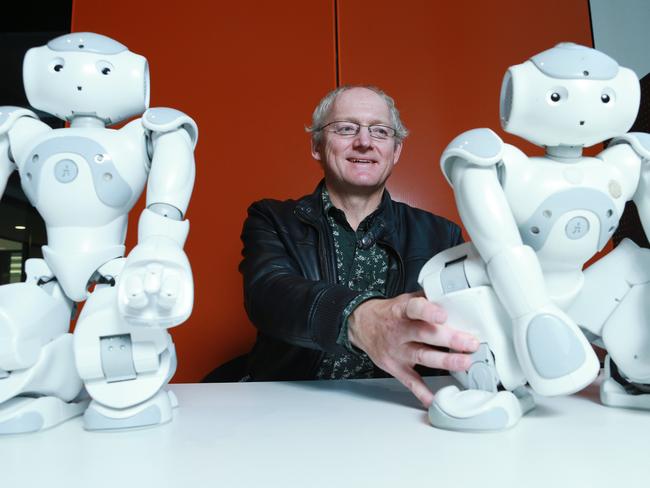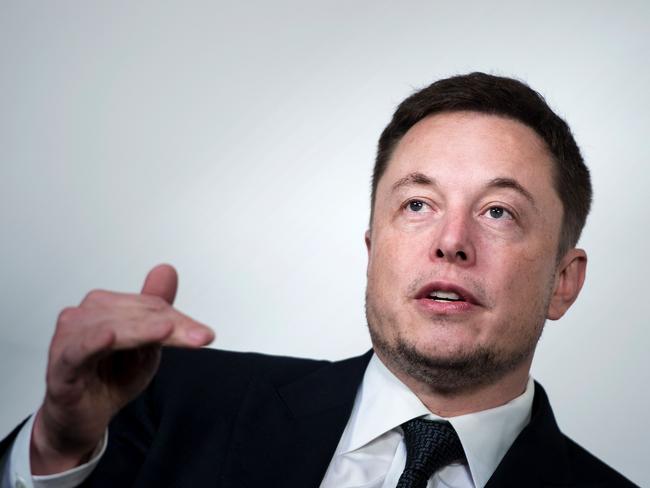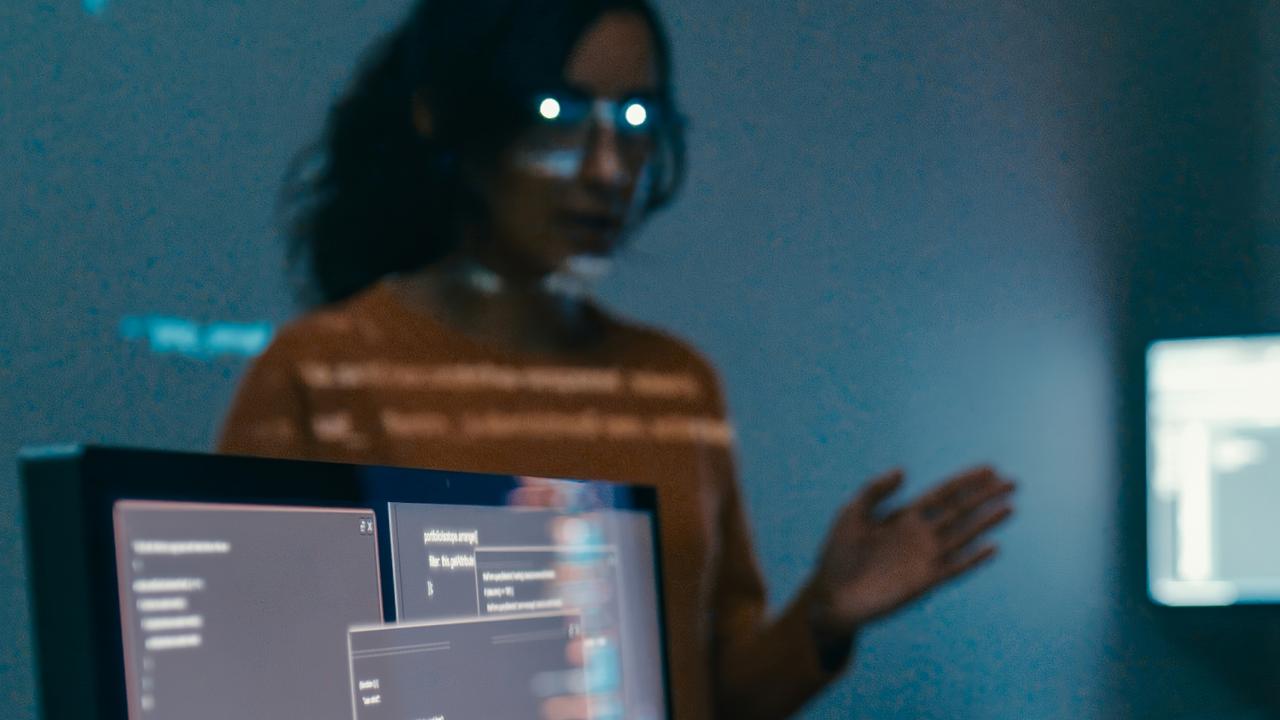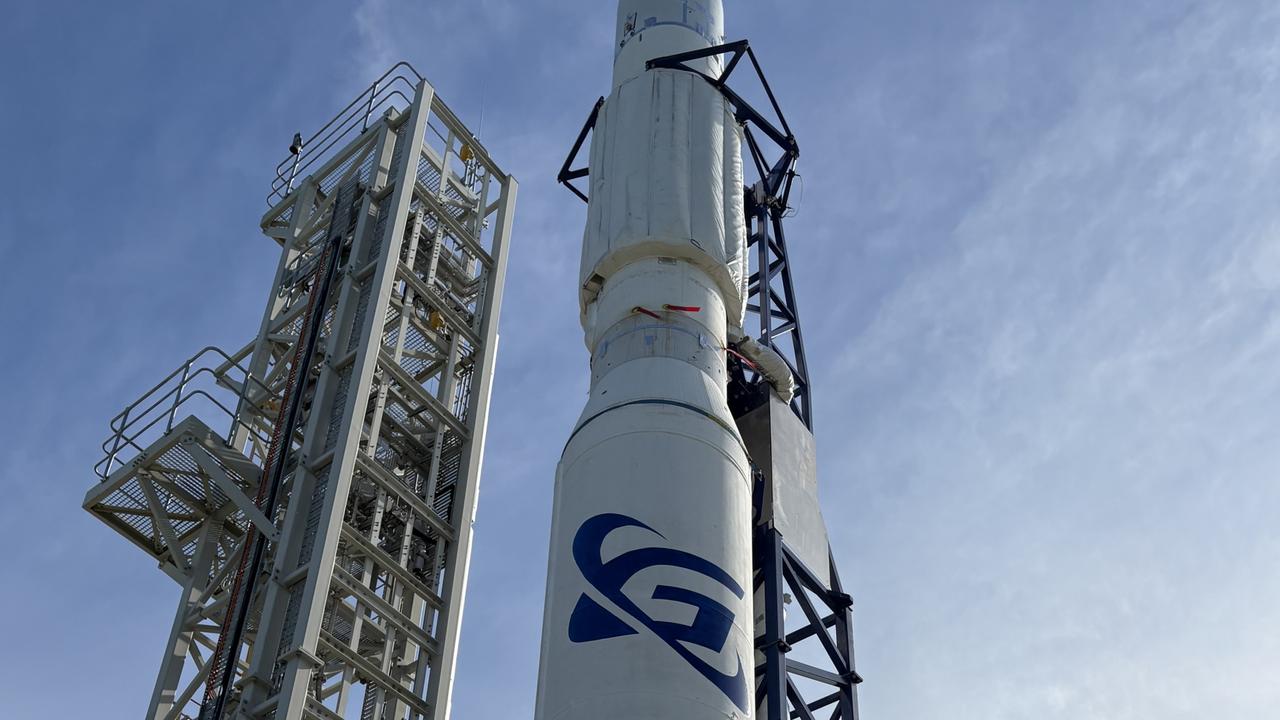Sydney professor and Elon Musk lead call for United Nations to ban lethal autonomous weapons
ELON Musk has joined 116 robotic and artifical intelligence founders to call for a ban on these lethal weapons or welcome a “terrifying future”.
A LEADING Sydney robotics expert has co-ordinated the release of an open letter to the United Nations signed by 116 founders of robotics and artificial intelligence companies, urging the UN to ban the use of lethal autonomous robots.
Professor Toby Walsh from the University of New South Wales’s School of Computer Science and Engineering believes a military arms race among the likes of China, the United States and Russia to develop and deploy so-called killer robots to be used in war is dragging the world down a dangerous path.
The letter was signed by industry leaders in artificial intelligence and robotics from 26 countries, including the CEO of Tesla and SpaceX Elon Musk, and Mustafa Suleyman, the founder and head of applied artificial intelligence at Google’s DeepMind.
It was published today as researchers gather in Melbourne for the International Joint Conference on Artificial Intelligence to discuss issues facing the emerging technology which is set to change the way we live. The potential benefits of AI — which seeks to teach computers to learn and behave like humans — are immense but it’s the military application of the technology that has many in the industry so worried.
“Lethal autonomous weapons threaten to become the third revolution in warfare,” the letter states.
“Once developed, lethal autonomous weapons will permit armed conflict to be fought at a scale greater than ever, and at timescales faster than humans can comprehend. These can be weapons of terror, weapons that despots and terrorists use against innocent populations, and weapons hacked to behave in undesirable ways.
“We do not have long to act. Once this Pandora’s box is opened, it will be hard to close.”
Professor Walsh has previously travelled to speak in front of the United Nations in an effort to have the international body prevent the proliferation of killer robots. Speaking to news.com.au in February he said “the arms race is already starting.”
He believes it’s a matter of years not decades until military weapons are imbued with some level of autonomy — which poses a number of worrying scenarios, particularly if they fall into the wrong hands.
“They get in the hands of the wrong people and they can be turned against us. They can be used by terrorist organisations,” he warned.
“It would be a terrifying future if we allow ourselves to go down this road.”

There are immense positives to the development of artificial intelligence and the technology is set to permeate untold facets of our lives. It is expected to be used to tackle social problems like inequality, poverty and help address the challenges posed by climate change.
“However, the same technology can also be used in autonomous weapons to industrialise war,” Prof Walsh said.
“We need to make decisions today choosing which of these futures we want. I strongly support the call by many humanitarian and other organisations for an UN ban on such weapons, similar to bans on chemical and other weapons,” he said in a statement alongside the letter.
Ryan Gariepy is the founder and chief technology officer of Clearpath Robotics in Canada and was the first to sign the letter.
“We should not lose sight of the fact that, unlike other potential manifestations of AI which still remain in the realm of science fiction, autonomous weapons systems are on the cusp of development right now and have a very real potential to cause significant harm to innocent people along with global instability,” he said.
“The development of lethal autonomous weapons systems is unwise, unethical and should be banned on an international scale.”
In 2015 Prof Walsh spearheaded a similar letter calling for collective action to curb autonomous weapons which was signed by, among others, Apple co-founder Steve Wozniak and world renowned physicist Stephen Hawking.
Prof Walsh said the initial letter “helped push this issue up the agenda” at the United Nations and begin formal talks.
In December 2016, 123 member nations of the United Nation’s Review Conference of the Convention on Conventional Weapons unanimously agreed to begin formal discussions on autonomous weapons. Of these member, 19 have already called for an outright ban.
“I am hopeful that this new letter, adding the support of the AI and robotics industry, will add urgency to the discussions at the UN that should have started today,” Prof Walsh said.




